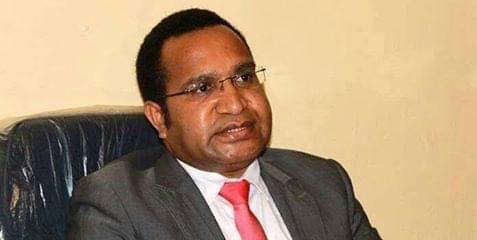The Internal Revenue Commission (IRC) of Papua New Guinea has collected a large tax assessment of K11.79 million on a large mining corporation, marking a significant step against corporate tax cheating.
The reason for this action stems from the company’s engagement in a sophisticated tax avoidance plan that was made public through Project Masta, an effort to ensure that employers and foreign workers comply with tax rules.
Commissioner General Sam Koim brought attention to a number of incidents of tax evasion and visa violations in the mining sector in a statement that revealed the findings of a thorough examination.
He emphasized that foreign employees who had first entered the nation on work permits for particular businesses were discovered to be employed by several enterprises, avoiding paying taxes that should have been paid to the government of Papua New Guinea.
Koim noted that in order to avoid paying taxes, these workers were frequently paid through bank accounts in other countries or at home with meager living allowances in Papua New Guinea.
Furthermore, it was found that certain foreign employees were using business visas to avoid paying taxes despite holding important positions in the organizations.
Over a period of nine years, starting in 2015, the IRC examined 1187 workers connected to the mining firm that was the subject of the inquiry.
Important information for this audit was obtained in cooperation with the Immigration and Citizenship Services Authority (ICSA) of Papua New Guinea.
This cooperation revealed differences between individuals who were declared foreign workers and those who possessed valid work visas.
The Commissioner General observed that these actions made it more difficult for the business to accurately withhold and return the taxes it owed to the IRC.
“This marks the first case since the inception of Project Masta,” Commissioner General Koim stated, emphasizing the IRC’s commitment to enforcing tax laws and ensuring compliance to uphold the integrity of the tax system.
He asked employers and international employees to make sure they have the right authorization to work in the nation and to pay their taxes as required.
Due to pending legal actions, the identity of the mining business in question is still being suppressed in compliance with Section 9 of the Income Tax Act.
Nonetheless, the IRC’s resolve to stop tax evasion and uphold the equity of Papua New Guinea’s tax system is demonstrated by its firm action.
The IRC and ICSA are working together to ensure tax compliance, and as investigations go on and enforcement actions get more aggressive, they are sending a strong message to individuals who want to take advantage of loopholes in the system for their own benefit.

